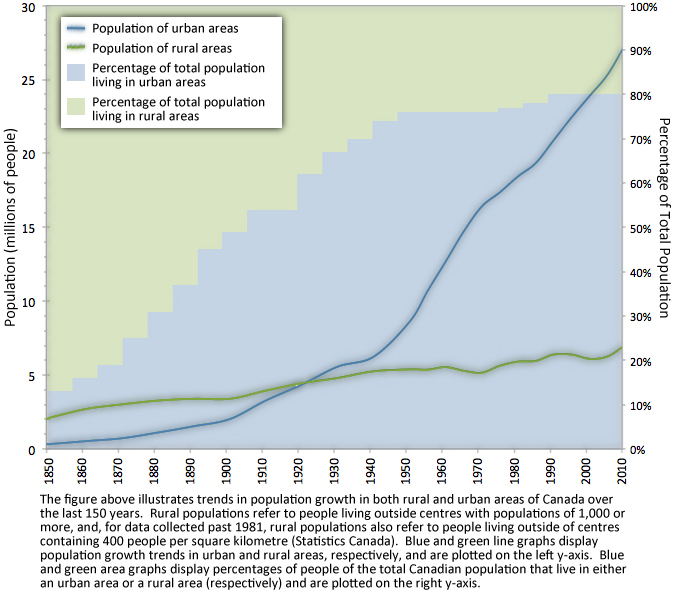November 29th, 2012
In light of Ann Dale’s (Principle Investigator of Community Research Connections) recent book release, Urban Sustainability: Reconnecting Space and Place, this month’s Patterns of Our Footsteps illuminates why this topic is becoming increasingly more important to Canadians. The figure below displays trends in population growth in both rural and urban areas of Canada over the last 150 years. At the time Canada became a Dominion in the British Commonwealth in 1867, over 80% of the Canadian population lived in rural areas. However, as the country matured, urban populations grew at a faster rate than that of rural populations, and urban populations exceeded that of rural by the 1930s. Shortly following World War II (at the beginning of the Baby Boom), population growth in urban areas increased three-fold, while rural population growth remained the same. In the last half century, the urban population in Canada has grown over 11 times faster than the rural population.
During the panel presentations of the Degrowth: A Critical Juncture? workshop, former BC Premier, Michael Harcourt, described cities as “opportunities” because they are the areas of rapid population growth. Harcourt was referring to the fact that, through innovative city planning and development, cities can accommodate the majority of the country’s population in a manner that encourages sustainable living and reduces ecological footprint. Recently in Vancouver, a vertical garden was constructed on the rooftop of a downtown parkade and this garden is currently growing organic produce for sale to local grocery stores and restaurants. Another exampele, last month in San Francisco, the Planning Department released a preliminary framework for transforming a currently under-used area of the city into an ‘eco-district’, an urban neighbourhood that fosters community innovation and works collaboratively to meet ambitious sustainability objectives.

Data sources - Population data were retrieved from Statistics Canada.
- Log in to post comments



CRC Comments